RST Apology to Tasmanian Aboriginal people 2021.

RST Apology to Tasmanian Aboriginal people 2021.
July 27, 7.30 pm Stanley Burbury Theatre, Sandy Bay campus, UTAS
Chair: Her Excellency Professor the Honourable Kate Warner, AM, Governor of Tasmania
Speaker: Dr John Cook, UQ
Around 7% of Australians believe climate change isn’t happening. What drives this rejection of climate science? The biggest driver of climate science denial isn’t education, science literacy, age or income: it’s who you vote for. Political ideology is a key factor, with people who oppose regulation of the fossil fuel industry denying there’s a problem needing solving in the first place. This matters because misinformation generated by this small group confuses the public, decreasing public support for climate action. How do we respond to climate science denial? Presenting evidence about climate change to those who reject climate science is not only ineffective, it can even backfire and harden their views. Instead, psychological research into inoculation theory points to another approach. Just as a vaccination stops a virus from spreading by exposing people to a weak form of the virus, we build resistance to science denial by explaining the techniques and fallacies of misinformation. Rather than try to change the minds of a small minority immune to evidence, we communicate to the majority who are still open to evidence. And not only do we need to communicate the science, we also need to explain how that science can get distorted.

John Cook is the Climate Communication Fellow for the Global Change Institute at The University of Queensland. He created and runs the website SkepticalScience.com, which won the 2011 Australian Museum Eureka Prize for the Advancement of Climate Change Knowledge and the 2016 National Center for Science Education Friend of the Planet Award. John has co-authored several university textbooks on climate change as well as the book Climate Change Denial: Heads in the Sand. In 2013, he published a paper on the scientific consensus on climate change that has been highlighted by President Obama and UK Prime Minister David Cameron. He also developed the MOOC (Massive Online Open Course), Making Sense of Climate Science Denial, released in April 2015. He is currently completing a PhD in cognitive psychology, researching the psychology of climate science denial.

The Royal Society of Tasmania acknowledges, with deep respect, the traditional owners of this land, and the ongoing custodianship of the Aboriginal people of Tasmania. The Society pays respect to Elders past, present and emerging. We acknowledge that Tasmanian Aboriginal Peoples have survived severe and unjust impacts resulting from invasion and dispossession of their Country. As an institution dedicated to the advancement of knowledge, the Royal Society of Tasmania recognises Aboriginal cultural knowledge and practices and seeks to respect and honour these traditions and the deep understanding they represent.

On 15 February 2021, the Royal Society of Tasmania offered a formal Apology to the Tasmanian Aboriginal people.